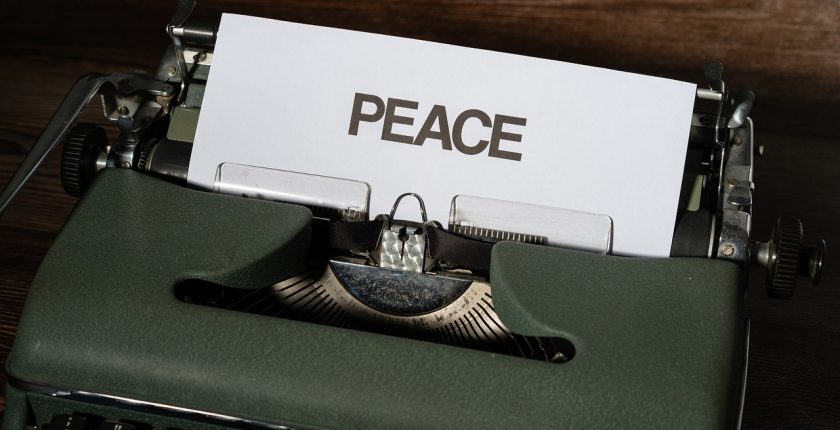Pandemics and Peacebuilding – why women need to be involved now more than ever
Peacebuilding amid a pandemic
Within fragile situations, where conflict is rife and subsistence a daily reality, the pandemic is threatening peacebuilding operations. With the world’s attention being drawn to pandemic damage control and funding being diverted and applied within national borders, the process of resolving conflicts is under threat.
Peacebuilders are reporting how Covid-19 is adversely affecting their work and complicating the situations they operate within. Although in some contexts, such as Yemen and Darfur, ceasefires have been negotiated to help fight the pandemic, this is not the universal norm. Many other aspects of building peace are being negatively affected. Social distancing measures are cancelling peacebuilding meetings and disrupting essential dialogues between conflicting groups. Critical moments within a fragile peacebuilding process are being disrupted. Violence against women has increased as funding and attention are directed elsewhere, and support programs are less likely to be conducted in person.
Women peacebuilders are actively fighting against Covid-19
Even as an alarming array of obstacles in dealing with Covid-19 are presented, the need to increase women’s participation in the peacebuilding process cannot be side-lined. Currently, the local efforts of women peacebuilders are providing the services needed to stabilise conflict zones when international efforts are being stretched or directed elsewhere. For example; MANSAM, a Sudanese coalition of women’s organisations advocating for democracy and representation of women in government, has mobilised to fight against Covid-19 with various initiatives.
Women are essential for sustainable peace
Internationally there has been a growing understanding that involving women in the peacebuilding process is vital for success. A study in 2018 found that the presence of female signatories meant that sustainable peace was more likely to ensue. There are different explanations for this. Firstly, female peace signatories and peacebuilders can advocate for the needs of a marginalised female population. As such there might be more of a focus on socio-political reform thereby creating a peace process that encompasses more aspects that affect society. Secondly, they can challenge traditional barriers to gender inequality and thereby promote greater economic growth. As a stable functioning society and economy is essential for lasting peace, this important contribution is increasingly recognised and valued.
Women peacebuilders sidelined in a pandemic
Despite the integral importance of women’s participation in constructing peace, current peace processes have remained dominated by male leadership, with women often relegated as victims rather than leaders. Between 1992 and 2018, women made up only 3% of mediators and 13% of negotiators (CSIS). Where women have been more involved in a formal peace process, their roles are often seen as symbolic rather than substantive.
This inequity has continued to exist and has even been exacerbated in the face of Covid-19. Within leadership, women are being further discounted from decision making as pre-existing gender inequalities grow. Additionally, women peacebuilders at the grassroots level, are not recognised as an essential part of maintaining peace during a pandemic. Their work is neither documented nor validated as peacebuilding work, even as they support their communities facing the pandemic crises. As such, the status of women is worsened even as their input in the peacebuilding process is needed now more than ever.
In the face of a pandemic that threatens to worsen conflict situations, women’s presence in the peacebuilding process cannot be side-lined. It must, in fact, be a point of focus in the effort to navigate both peace and the pandemic. Overlooking women at this time could derail the potential for peace in contexts that are dealing with both the pandemic and conflict at the same time.
References
Peace Direct, (April 2020), Covid-19 and the impact on local peacebuilding, COVID-19-and-the-impact-on-local-peacebuilding.pdf (peacedirect.org)
Jaghab, J,. (10th September 2020), The Important Role of Women Peacebuilders in COVID-19 Pandemic Response, The Important Role of Women Peacebuilders in COVID-19 Pandemic Response – World | ReliefWeb
Devex, (27th May 2020), Q&A: Why women peacekeepers are needed now more than ever, Q&A: Why women peacekeepers are needed now more than ever | Devex
Yayboke, E,. (10th August 2020), Elevating Women Peacebuilders amidst Covid-19, Elevating Women Peacebuilders amidst Covid-19 | Center for Strategic and International Studies (csis.org)
UN, (18th October 2019), The power of women peacebuilders, The power of women peacebuilders | UN Women – Headquarters
Ramo S,. (1st April 2020), Gendering COVID-19: implications for women, peace and security, Gendering COVID-19: implications for women, peace and security | LSE Women, Peace and Security blog
Forsyth, M,. (3rd April 2020), Lessons from African Feminists Mobilizing Against COVID-19, Lessons from African Feminists Mobilizing Against COVID-19 – Coronavirus Coverage (columbia.edu)

